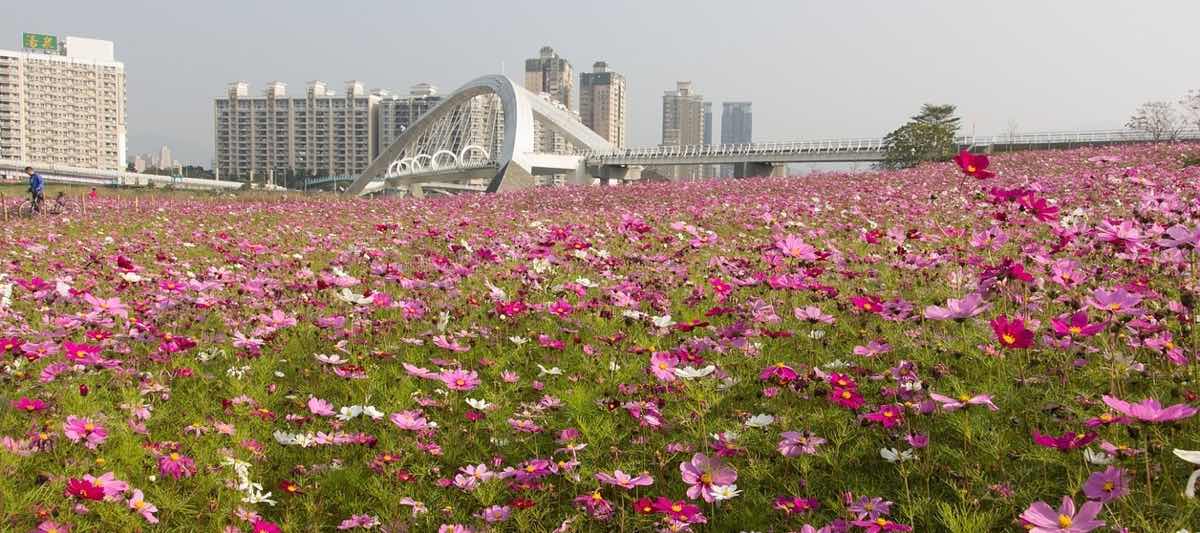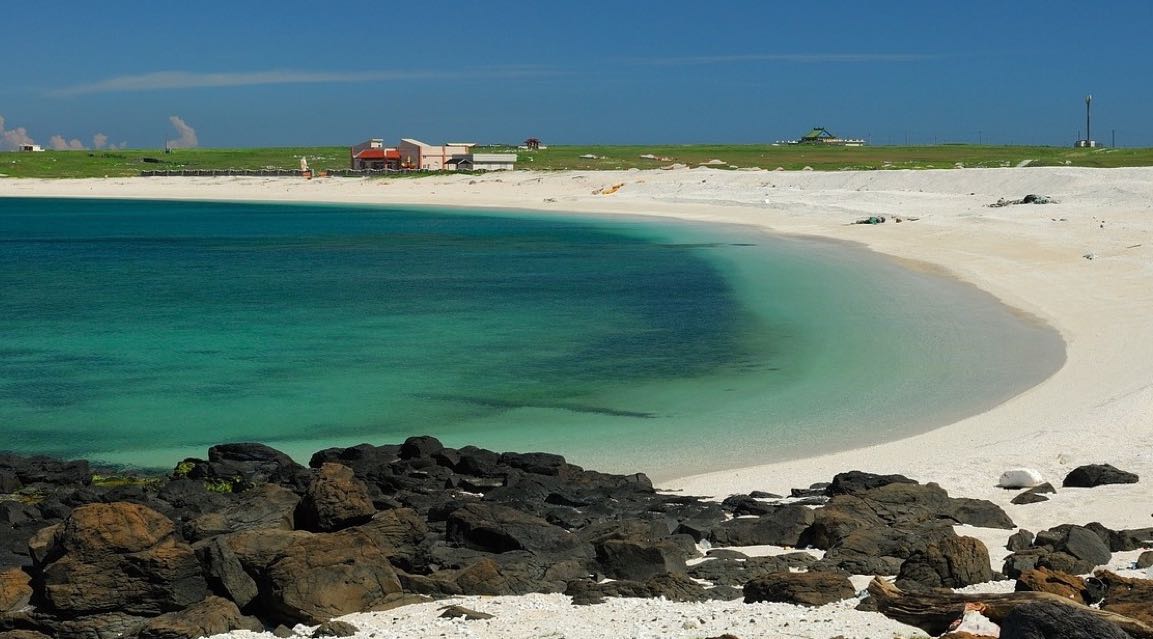
Springtime visitors to Taiwan are guaranteed both warm, sunny weather and a number of lively festivals. In Taipei, daytime temperatures are typically 19 degrees Celsius (66 degrees Fahrenheit) in March. By the following month, it’s already 23 to 29 degrees Celsius (73 to 84 degrees Fahrenheit) in Kaohsiung. It’s no wonder city parks and the countryside quickly fill up with wildflowers and butterflies.
The season features one of Taiwan’s most important religious events — birthday celebrations for the sea goddess Mazu, the most revered of the 1,000-plus deities worshipped by the island’s Taoists and practitioners of folk religion. While hundreds of temples throughout the western half of the island hold rites to mark Mazu’s birthday, the 23rd day of the third lunar month, the eight-day pilgrimage which begins and ends at Dajia Jenn Lann Temple is the especially colourful and fascinating. There’s no bar to foreigners or unbelievers taking part; in 2010, one Canadian reporter walked the entire distance.
Jenn Lann Temple is located within Taichung City in central Taiwan. The local government is keen to promote the festival to an international audience, and if you look at the English-language pages of the website they’ve set up, you’ll notice the event now includes several decidedly non-traditional elements, among them rap-band performances and cheerleaders.
During the Mazu event you’re sure to see and hear plenty of fireworks, but if you’re a real fan of pyrotechnics, you should schedule a few days in the Penghu Islands. This cluster of 90 islands, around 45 km west of Tainan is easy to access by ferry or air, and offers pristine beaches (like the one shown here) and photogenic semi-abandoned villages. The archipelago — where Mazu is also widely worshipped — also boasts excellent seafood and a unbelievably relaxing vibe.

The Penghu Ocean Fireworks Festival, now in its 16th year, will fill the skies above Magong’s Guanyin Temple with colour and light most evenings between April 20 and June 22.
The islands themselves are starkly different to Taiwan: Arid, almost totally flat and thinly populated. Until tourism and income from hundreds of electricity-producing wind turbines brought a degree of prosperity, life here was hard. Many islanders migrated to the Taiwanese mainland, but in the past decade or so a considerable number have moved back home, simply because the archipelago offers a quality of life second to none. We at Life of Taiwan would love for you to come and experience it! At Life of Taiwan, we specialise in catering to the needs of English-speaking and European visitors. Join our luxury tours, private food tours or family tours of Taiwan for an unforgettable journey through Taiwan. Contact us today to plan your perfect Taiwan private tour.
